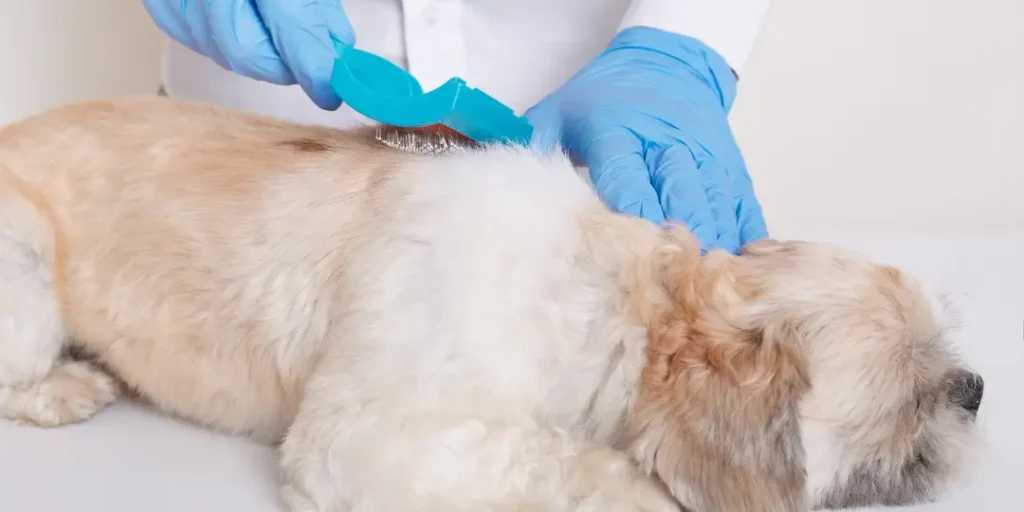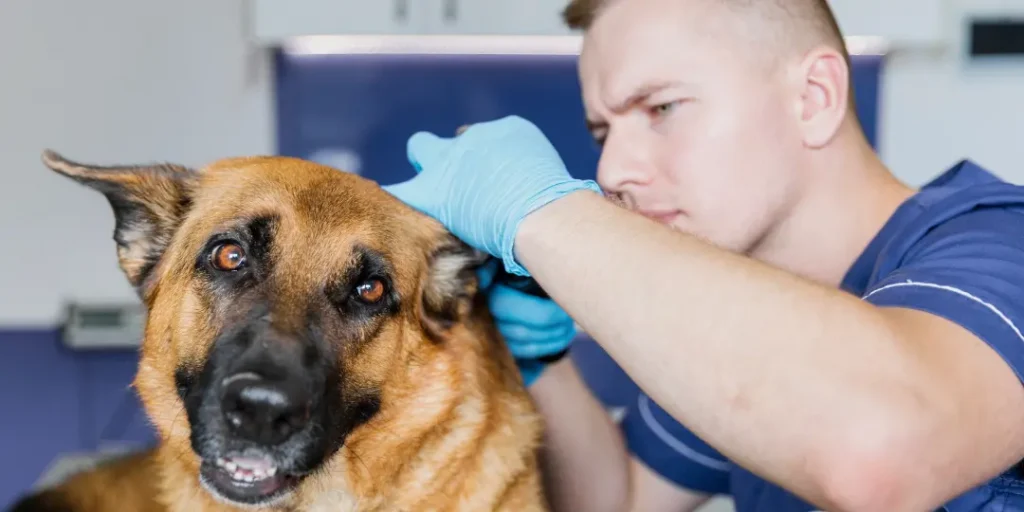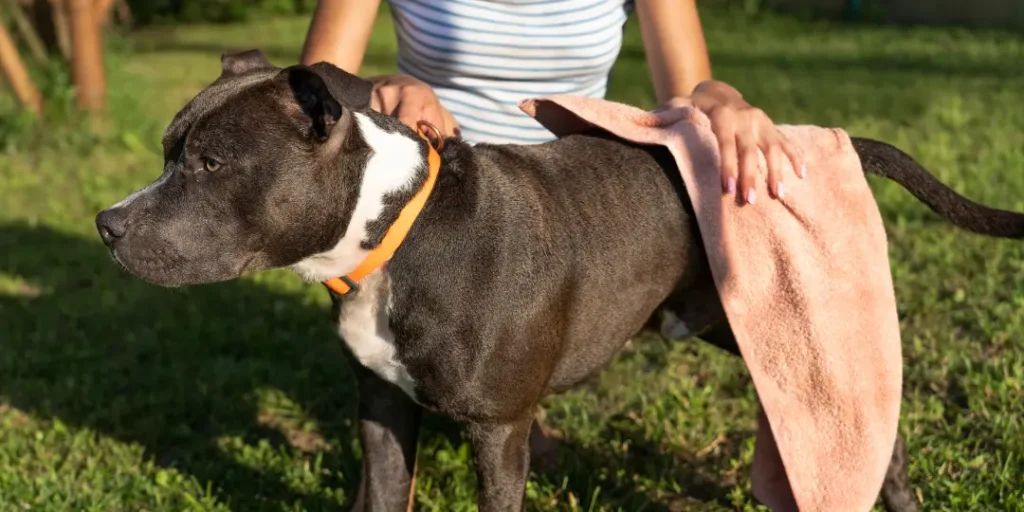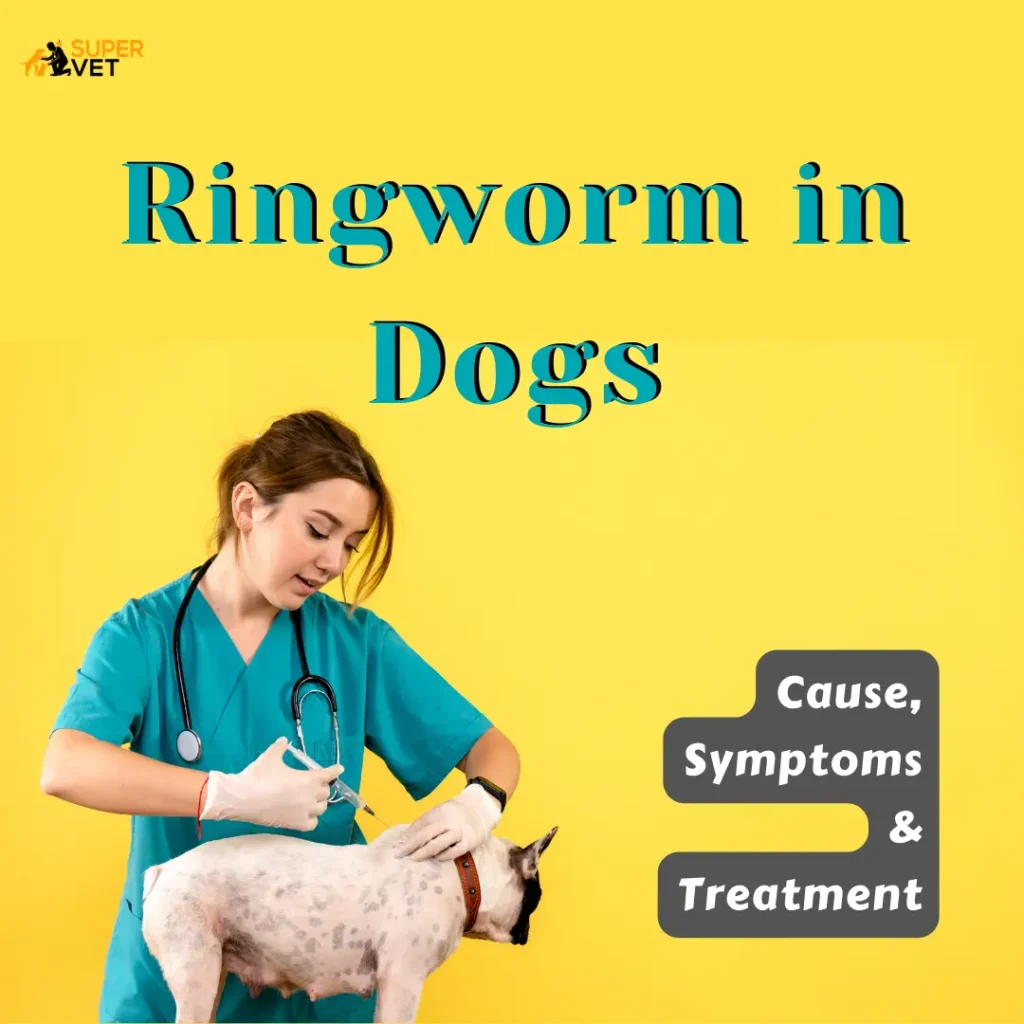A blog post on Ringworm in Dogs and its causes, symptoms & treatments.
Ringworm is a widespread condition around the world, affecting nearly every species of domesticated animal, including dogs. So dog owners must be aware of ringworm symptoms, causes, and treatment options.
Despite its name, ringworm is not a worm (or even caused by a worm), but rather is a fungal infection that infects the upper layers of skin and hair. It is a fungal infection that causes rings-shaped, dry patches on the skin of dogs, and it may affect your dog’s hair and nails.
The Bottom Line Ringworm – A fungal infection affecting the skin of your dog is a common and treatable health problem.
Cause of Ringworm in Dogs

Ringworm in dogs, also known as Dermatophytosis, is a fungal infection caused by a parasite that invades your skin, hair, or nails.
In fact, Ringworm is a highly infectious fungal infection that can affect nearly anyone, from humans to domestic animals. Puppies, older dogs, and dogs with compromised immune systems can sometimes suffer a more widespread infection of ringworms.
Some dogs may pass on ringworm to other animals or humans, even without any visible skin lesions, and are called asymptomatic carriers. Unfortunately, dogs are still infectious, and they may pass Ringworm on to other pets and household members.
Symptoms of Ringworm

Ringworm symptoms in dogs can include:
- Loss of hair
- Sometimes in rings-shaped patches
- Crusty & scaly skin
- Spots of excessive dandruff
- Changes to the dog’s coat
- Darkened patches of skin
- Inflammation in nails
- Dog’s claws may get brittle and snap easily
The ringworm fungus typically attacks the hair follicles, which causes affected hair strands to snap off along the lines of the skin.
Treatment of Ringworm

Treatment of ringworm depends on the severity of the infection
- Veterinarians may prescribe shampoos or ointments with special medications to kill the fungus.
- If your veterinarian recommends long-term treatment for your dog, make sure to follow that advice.
- Sometimes oral medications are required.
- Bathe all pets in the house with a medicated rinse or shampoo.
- Disinfecting the bedding and toys of infected animals so can kill Ringworm spores.
- Throw away items that cannot be thoroughly disinfected (carpets etc).
- Vacuum frequently to remove infected hairs and skin cells from your house because fungi can live on the hair and skin that your dog sheds.
- Thoroughly cleanse your hands after you wash or touch your dog.
Conclusion

Hair loss can be caused by other skin conditions — which is why pet owners need to check with a vet to confirm the diagnosis of ringworm.
Other, more common conditions cause hair loss and skin rashes, too. So if you do notice any symptoms of ringworm on your dog, bring it in to see your family vet.
Bacterial skin infections (pyoderma), yeast infections on the skin, and allergies are a few of the other most common problems affecting dogs and can appear to be similar to Ringworm to an untrained eye.
You must do what your veterinarian instructs you to do if your dog has ringworm so that the infection does not spread to other pets or to humans.
Supervet provides the best Online Pet Services in Kota where you can also consult with vets about your dog’s health and take guidance from them.

